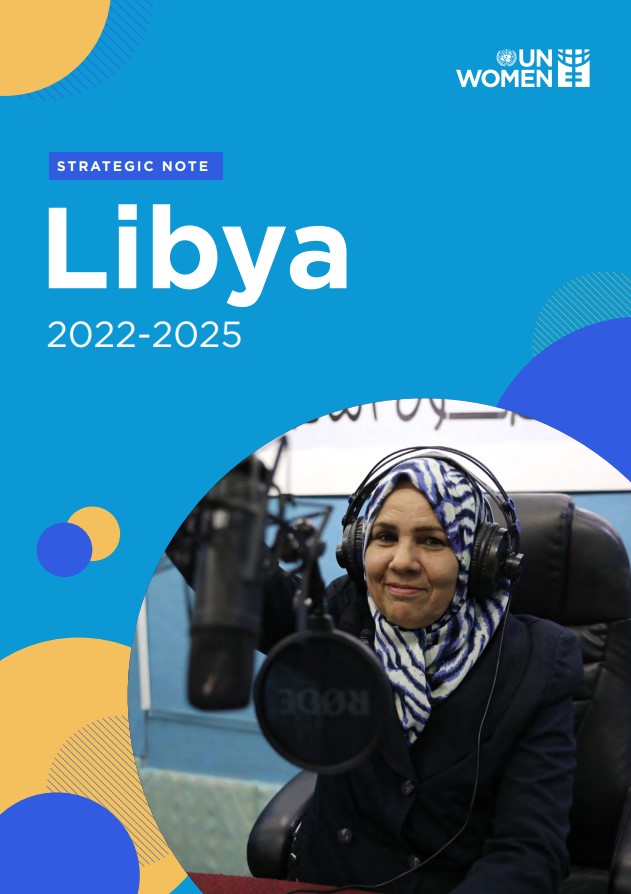In the words of: Rafia el Abidi - Libya's first female judge and first female counsellor of the Libyan Supreme Court
Photo of Chancellor Rafia elAbidi in her office. Photo: Rafia elAbidi
In Benghazi, Libya, the story of Chancellor Rafia al-Abidi has become an icon of will and dedication in the service of justice and the promotion of the role of women in society. Her success was born of her determination and dedication to the law, despite the traditional limits imposed on women in the legal profession, she graduated from the Faculty of Law at the University of Benghazi in 1977.
She started her career as a legal researcher in the field of legal affairs management in the Benghazi Legal Department, before becoming a lawyer in the public defender's office and arguing various civil, criminal, and administrative cases. But her real dream was to become a member of the judiciary – seemingly an impossible dream, as the law governing the Libyan judicial system at that time did not allow women to hold the position of judge.
It took until 1989 for her dream to come true, when the Libyan Judiciary Act was amended to open the door to women's participation. Rafia was appointed the first female judge at the Benghazi Court of First Instance, where a new journey began. Over the course of ten years, she faced many challenges, from overcoming stereotypes about women's role in society as well as her own wariness of the paths taken by some litigants. But with patience and professionalism, Rafia has helped change the perception of women and earned everyone's respect and trust.
In 2003, she was appointed as a counsellor for the Benghazi Court of Appeal, before becoming the first female counsellor of the Supreme Court in 2010, and still presides over the Second Criminal Chamber of the Supreme Court.
"The biggest challenge I've faced in my work as a judge,” she now states, “has been people's belief that somehow the role of a judge was reserved exclusively for men."
Rafia is convinced that investing in the promotion and empowerment of women in the judiciary promotes justice and equality in society. The celebration of International Judges' Day is therefore an opportunity to highlight the role of women in the courts and to inspire a new generation of female judges to work hard and impartially.
Thanks to her perseverance, Rafia al-Abidi has gone from being a tenacious lawyer to a trustworthy judge. She climbed the ladder of success to become Libya's first female Supreme Court Councillor, an inspiring role model for women everywhere.
Tags
Summary of country programme
UN Women’s Libya Strategic Note 2023–2025 addresses women's empowerment amid political instability and post-conflict transition. The programme addresses challenges such as shrinking civic spaces, a lack of institutional capacity, and sociopolitical obstacles that disproportionately impact women and girls.
The programme focuses on governance, peace and security; women’s political participation; and ending violence against women. Key approaches comprise capacity-building for national institutions, advocacy for legal reforms and strengthened coordination among development assistance partners.
Major partnerships with UN entities (the UN Support Mission in Libya, UN Development Programme, Office of the High Commissioner for Human Rights and UN Population Fund) and local civil society organizations enhance programmatic effectiveness and coordination. Significant outcomes include women’s greater participation in local elections, stronger capacities among partners to advocate for inclusive legal reforms and adoption of an inclusive national reconciliation plan. Strategic Note direct funding supports these initiatives, amplifying their impact.
Documents

Libya: Strategic note 2022–2025 brochure
22 May 2025
